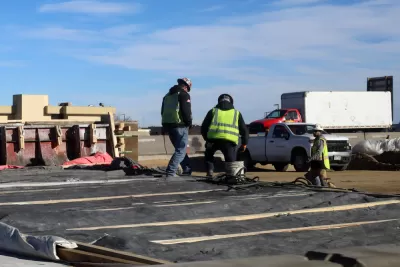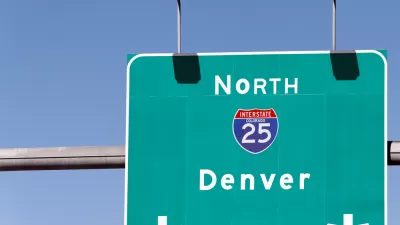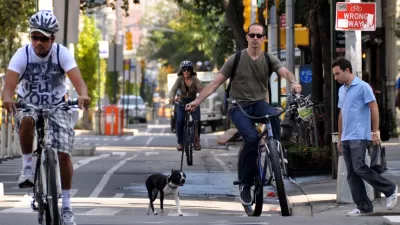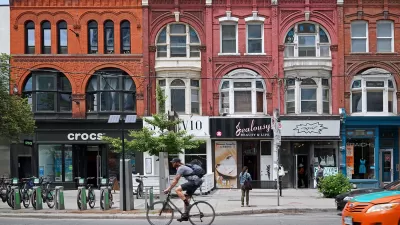The Colorado Department of Transportation might be building fewer roads than they had originally planned after the coronavirus recedes. A few projects already underway have been able to speed up.

"Big highway projects along the Front Range have taken advantage of the unprecedented weeks-long lull in traffic set off by the coronavirus pandemic by speeding up some work," reports Jon Murray.
The lack of automobile traffic in Colorado has accelerated construction on the Central 70 project in northeast Denver and the I-25 South Gap project, among others, reports Murray, but the numerous other projects are at-risk of losing necessary funds as drivers stay off the roads and leave gas tax revenues on empty in the state.
Colorado Department of Transportation Executive Director Shoshana Lew presented a preview of budgetary challenges to come for road projects in the state at a recent meeting of the Colorado Transportation Commission.
"Suddenly at risk are big-ticket projects on Interstate 70 in the mountains, including a notorious bottleneck at Floyd Hill, as well as widening work along sections of Interstate 25 along the Front Range and an overhaul of Interstate 270 in metro Denver," writes Murray to explain the at-risk projects.
Lew described a total of $250 million in projected hits to Colorado's planned projects over the next three years—just a few months removed from the Colorado Transportation Commission's November 2019 approval of a $1.6 billion project list for CDOT, described by Murray as "the most substantial funded road plan in years."
Concern about road and highway construction funding has already been expressed in Missouri, as well.
FULL STORY: Construction speeds up on I-70 and I-25, but other Colorado projects may be doomed by coronavirus

Alabama: Trump Terminates Settlements for Black Communities Harmed By Raw Sewage
Trump deemed the landmark civil rights agreement “illegal DEI and environmental justice policy.”

Planetizen Federal Action Tracker
A weekly monitor of how Trump’s orders and actions are impacting planners and planning in America.

Why Should We Subsidize Public Transportation?
Many public transit agencies face financial stress due to rising costs, declining fare revenue, and declining subsidies. Transit advocates must provide a strong business case for increasing public transit funding.

Understanding Road Diets
An explainer from Momentum highlights the advantages of reducing vehicle lanes in favor of more bike, transit, and pedestrian infrastructure.

New California Law Regulates Warehouse Pollution
A new law tightens building and emissions regulations for large distribution warehouses to mitigate air pollution and traffic in surrounding communities.

Phoenix Announces Opening Date for Light Rail Extension
The South Central extension will connect South Phoenix to downtown and other major hubs starting on June 7.
Urban Design for Planners 1: Software Tools
This six-course series explores essential urban design concepts using open source software and equips planners with the tools they need to participate fully in the urban design process.
Planning for Universal Design
Learn the tools for implementing Universal Design in planning regulations.
Caltrans
Smith Gee Studio
Institute for Housing and Urban Development Studies (IHS)
City of Grandview
Harvard GSD Executive Education
Toledo-Lucas County Plan Commissions
Salt Lake City
NYU Wagner Graduate School of Public Service





























